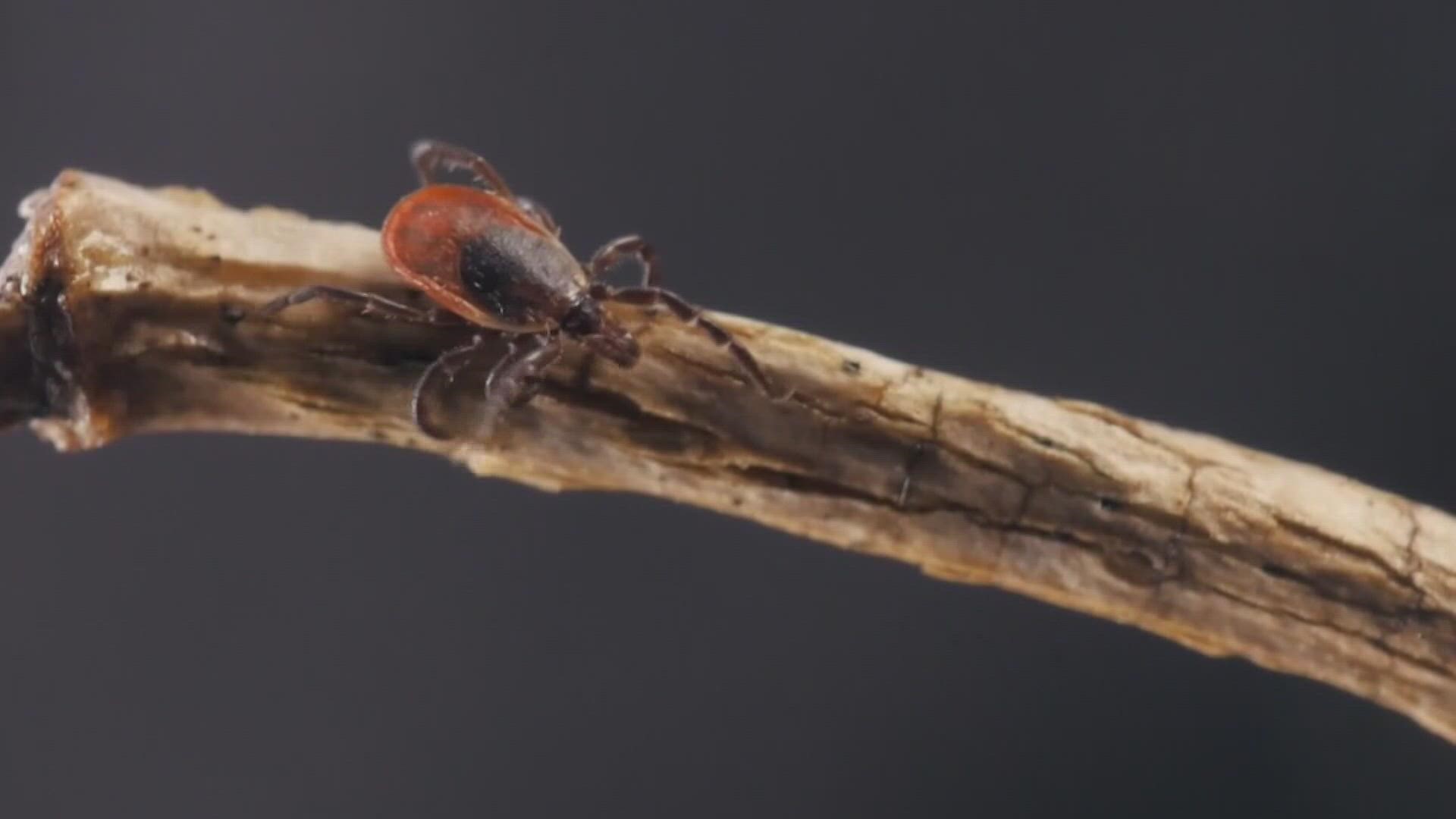MAINE, Maine — Winter is a time when the risk of getting Lyme disease and other tick-borne infections is at its lowest.
Despite a drop in activity, deer ticks rarely die off, even in harsh conditions, because they can survive under snow cover. But if temperatures get above freezing for a couple of days, experts warn, ticks can reemerge quickly.
"Even if you have sub-zero temperatures, that insulating snowpack actually provides a nice buffer for the ticks. It helps them to survive," Chuck Lubelczyk, a vector ecologist with the Maine Medical Center Research Institute, said.
Lubelczyk leads a team of researchers tracking ticks throughout Maine.
Ticks that carry Lyme disease and other infections can also remain active attached to deer or other animals moving around looking for food. He said ticks could die off when there is no snow cover and prolonged sub-zero temperatures.
"A lot of surface ice on the ground, that doesn't provide a whole lot of insulation for the ticks to overwinter," Lubelczyk said.
But experts said any winter thaw — when temperatures rise above freezing over a prolonged time — could spur tick activity.
"It's not uncommon for people to find ticks following that February thaw. Frequently, they get on animals, your pets. Especially if they get out in the woods," Lubelczyk said.
Griffin Dill is the manager of the University of Maine Cooperative Extension Tick Identification Lab in Orono. The lab analyzes tick samples sent in from the public and tests them for pathogens.
Last year saw a significant spike in samples compared to the previous year, partly due to a surge in dog tick activity.
The lab received more than 3,500 deer ticks submitted from Maine's 16 counties. Forty-two percent tested positive for the bacteria that causes Lyme disease, increasing from 2020.
"We also saw a dramatic increase in anaplasia and babesia, the agents of anaplasmosis and babesiosis," Dill said.
The UMaine Tick Surveillance Annual Report also found 65 percent of people who submitted samples found them on their property, often doing yard work.
Dill said if temperatures begin to thaw this month, take precautions, and do tick checks. For more information on protecting people and pets against ticks, click here.

